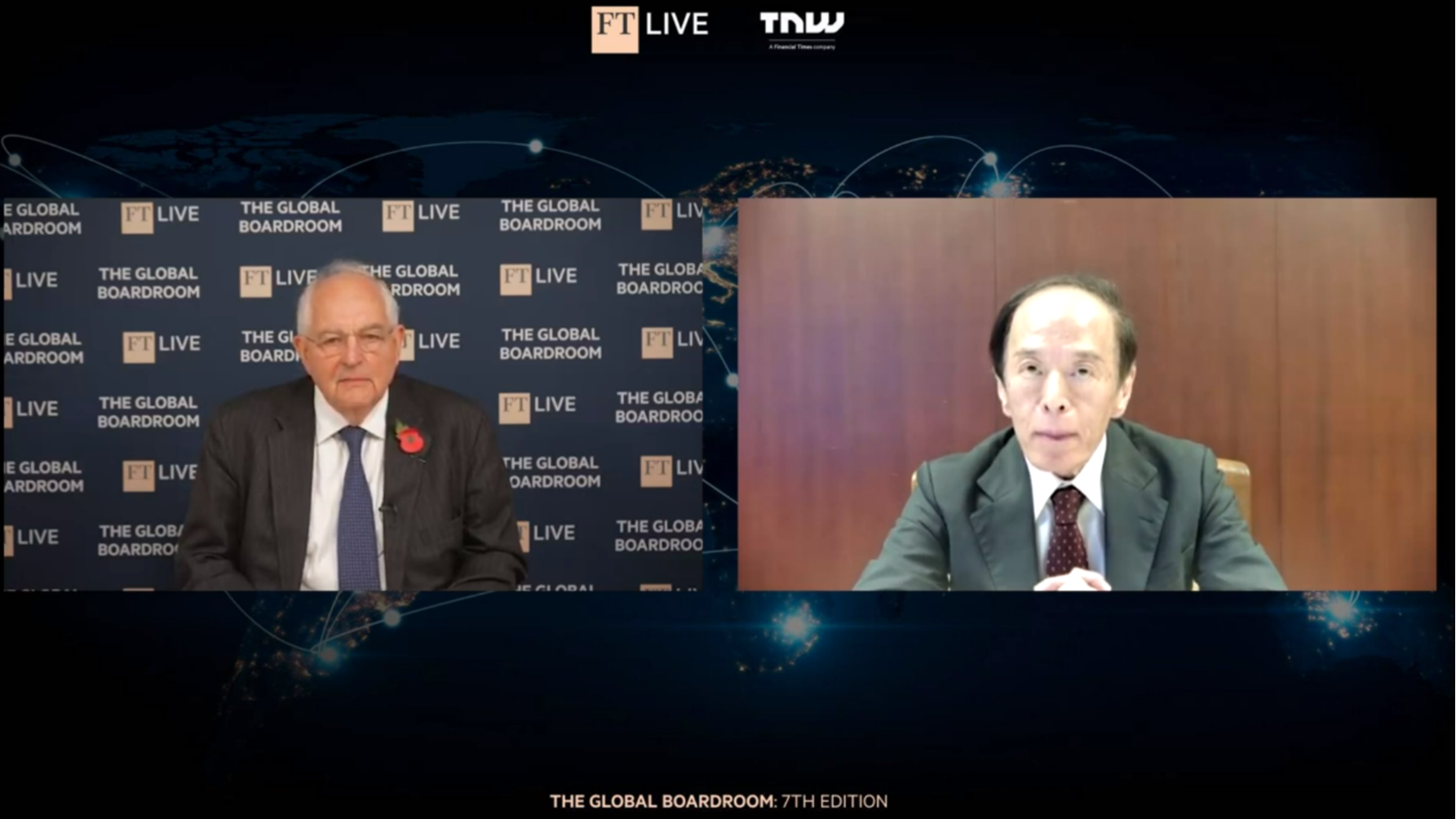The Bank of Japan will proceed carefully with raising interest rates to avoid bond market volatility and any adverse impact on financial institutions, its governor has said, warning that unwinding the central bank’s ultra-loose monetary policy will be a “serious challenge”.
Kazuo Ueda told the Financial Times Global Boardroom conference that the central bank was making progress towards hitting its 2 per cent inflation target but cautioned that it was still “too early” to determine the sequence of its policy normalisation.
“When we normalise short-term interest rates, we will have to be careful about what will happen to financial institutions, what will happen to borrowers of money in general and what will happen to aggregate demand,” Ueda said. “It is going to be a serious challenge for us.”

Since becoming the first academic to take the helm of the BoJ in April, Ueda has begun to gradually loosen the central bank’s tight grip on the bond market as it comes under pressure from a weakening yen, rising yields and persistent inflation.
The BoJ is the only major central bank in the world to maintain negative interest rates. Its exit from decades of unprecedented easing measures could have major ramifications for international bond markets, as Japanese investors own trillions of dollars of overseas debt.
The BoJ last month decided to allow yields on the 10-year Japanese government bond to rise above 1 per cent, a step towards ending its seven-year policy of capping long-term interest rates.
Japan’s core inflation rate, which excludes volatile fresh food prices, retreated to 2.8 per cent in September after hitting a peak of 4.2 per cent in January, but has remained above the BoJ’s target for 18 months.
Ueda said underlying inflation, stripping out temporary factors, remained below the BoJ’s target despite signs that wage-setting behaviour by Japanese companies was starting to change following the initial shock from rising global commodities prices.
“We are making progress towards achieving this same goal, but there’s still some distance to cover before we can scrap the forward guidance,” Ueda said, referring to the BoJ’s commitment to continuing its quantitative and qualitative monetary easing until its inflation target can be sustainably achieved.
“It’s quite uncertain how long this distance will be. It’s too early to determine what specifically we will be doing when we seriously normalise our policy stance.”
Ueda said Japan’s banking system was robust enough to withstand some increase in short-term interest rates. But he also warned that the BoJ would need to monitor the situation carefully since financial institutions and the country as a whole had become accustomed to the ultra-low rates that had been in place for such a long period.
“I think they have enough capital to weather some increase in interest rates. But it’s a matter of degree so we’ll have to be careful,” Ueda said.
The governor also cited risks to the economic outlook in the US and China.
“The economy of China is facing . . . many challenges in the midst of increasing geopolitical tensions,” he said. “There could be some more serious spillover of what’s happening in the property sector to the rest of the economy.”


